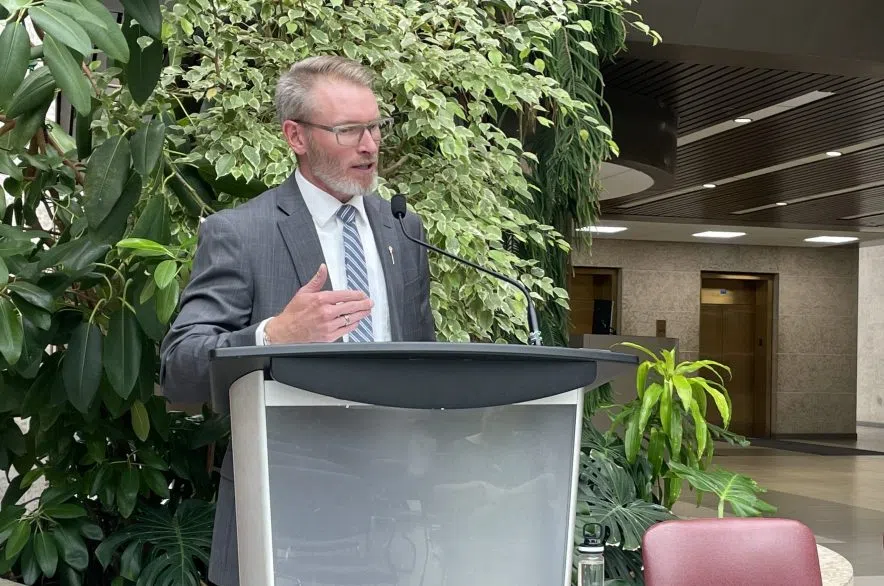A new pilot project launched by the Saskatchewan Party will give pharmacists more power to help treat people with different infections and illnesses.
Some pharmacists will now receive training to test and prescribe medication for ear infections and strep throat.
Minister of Health Everett Hindley, said the project should help free up some doctor’s time to deal with more complex issues.
“I think that will help relieve some of the pressures on our emergency departments,” he said. “I think that would be welcomed.”
The project will start in 10 pharmacies offering ear infection and strep throat testing. An additional 50 locations will offer ear infection assessments only. No pharmacies have been selected for the project yet.
The announcement comes after the Saskatchewan Association of Rural Municipalities (SARM) released a statement calling for the government to expand pharmacist’s scope of practice.
Bill Huber, the acting President of SARM, said the announcement is “great news.”
“Two of the biggest issues in rural Saskatchewan are limited access to services and shortage of healthcare professionals,” Huber said. “So, this pharmacy care model would help alleviate both these major concerns.”
While he could always want more, Huber sees this as a step in the right direction and hopes pharmacist’s scope of practice will continue to be expanded.
With 425 licensed pharmacies operating in the province, Hindley said this pilot project should help people in rural areas access more care.
“I think that for folks living in rural Saskatchewan, it provides that opportunity for them to access a healthcare provider that’s trained to provide this sort of service,” he said.
Hindley added that hiring healthcare professionals is still a priority to the provincial government, but said expanding pharmacists’ scope of practice will help in some rural areas.
Michael Fougere, the CEO of the Pharmacy Association of Saskatchewan, said he is pleased to see pharmacist’s scope of practice expanded.
He agreed the decision would help more people access care.
“In the case of pharmacists, particularly in rural and small-town Saskatchewan, they are the only healthcare professionals in the area,” he said. “We do want to see more healthcare services to the public because it gives us greater access to healthcare, that is a primary issue.”
Saskatchewan pharmacists currently have the authority to prescribe to 30 minor ailments in the province.
Pharmacists will be trained by the Saskatchewan College of Pharmacy Professionals at the University of Saskatchewan.
The program’s funding received $700,000 in total with $300,000 of that money going towards training pharmacists. Training will begin in October, with the program rolling out in December.
“I’m excited to see what this pilot can bring and I do think it is going to be successful,” Hindley said. “We are going to see benefits from it.”
Depending on the success of the pilot project, Hindley said it could be expanded across the province.











